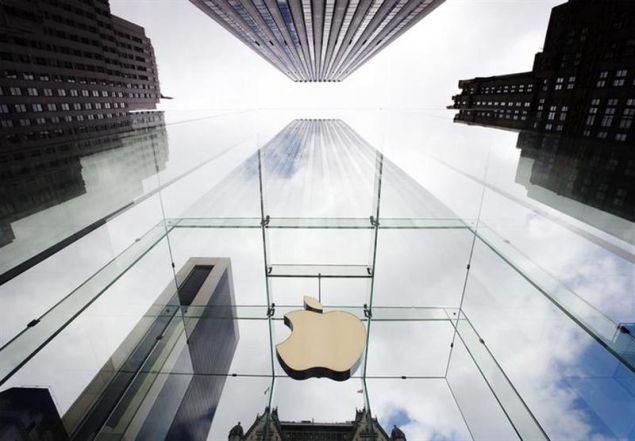- Home
- Internet
- Internet News
- Apple, others found not guilty in California credit card suit
Apple, others found not guilty in California credit card suit

In a split decision, the California Supreme Court said state privacy protections for credit cards do not apply to online purchases that are downloaded electronically.
The ruling comes after the same court in 2011 said that those privacy protections do apply to brick and mortar retailers, finding that they could not request a customer's ZIP code during a credit card transaction.
Apple was the defendant in the latest lawsuit, brought as a proposed class action by a consumer who purchased downloads from iTunes. Online retailers eBay Inc and Wal-Mart Stores Inc also filed briefs supporting Apple.
An Apple spokeswoman declined to comment, and an attorney for the plaintiff could not be reached.
Three dissenting California Supreme Court justices argued that the ruling represents "a major win for these sellers, but a major loss for consumers, who in their online activities already face an ever-increasing encroachment upon their privacy."
But the four justices in the majority disagreed. "These ominous assertions, though eye-catching, do not withstand scrutiny," Justice Goodwin Liu wrote.
Other state and federal privacy laws protect against disclosure of personal identification information, Liu wrote for the majority. Additionally, electronic retailers need more safeguards against fraud than traditional shops.
"Unlike a brick-and-mortar retailer, an online retailer cannot visually inspect the credit card, the signature on the back of the card, or the customer's photo identification," Liu wrote.
The case in the Supreme Court of California is Apple Inc vs. The Superior Court of Los Angeles County and David Krescent, S199384.
© Thomson Reuters 2013
Catch the latest from the Consumer Electronics Show on Gadgets 360, at our CES 2026 hub.
Related Stories
- Samsung Galaxy Unpacked 2025
- ChatGPT
- Redmi Note 14 Pro+
- iPhone 16
- Apple Vision Pro
- Oneplus 12
- OnePlus Nord CE 3 Lite 5G
- iPhone 13
- Xiaomi 14 Pro
- Oppo Find N3
- Tecno Spark Go (2023)
- Realme V30
- Best Phones Under 25000
- Samsung Galaxy S24 Series
- Cryptocurrency
- iQoo 12
- Samsung Galaxy S24 Ultra
- Giottus
- Samsung Galaxy Z Flip 5
- Apple 'Scary Fast'
- Housefull 5
- GoPro Hero 12 Black Review
- Invincible Season 2
- JioGlass
- HD Ready TV
- Laptop Under 50000
- Smartwatch Under 10000
- Latest Mobile Phones
- Compare Phones
- Tecno Spark Go 3
- iQOO Z11 Turbo
- OPPO A6c
- Samsung Galaxy A07 5G
- Vivo Y500i
- OnePlus Turbo 6V
- OnePlus Turbo 6
- Itel Zeno 20 Max
- Lenovo Yoga Slim 7x (2025)
- Lenovo Yoga Slim 7a
- Lenovo Idea Tab Plus
- Realme Pad 3
- Garmin Quatix 8 Pro
- NoiseFit Pro 6R
- Haier H5E Series
- Acerpure Nitro Z Series 100-inch QLED TV
- Asus ROG Ally
- Nintendo Switch Lite
- Haier 1.6 Ton 5 Star Inverter Split AC (HSU19G-MZAID5BN-INV)
- Haier 1.6 Ton 5 Star Inverter Split AC (HSU19G-MZAIM5BN-INV)

















